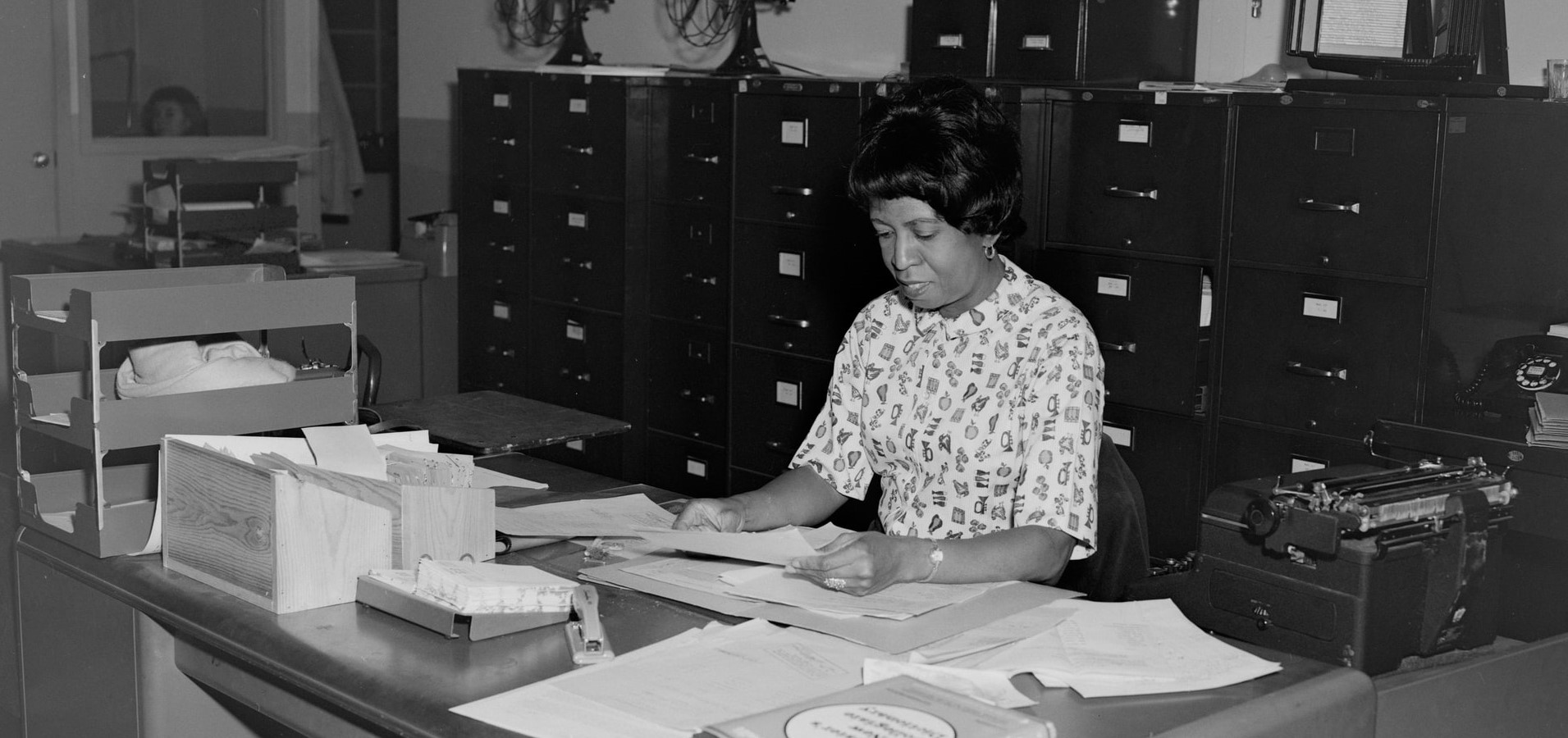When I began practicing law in 1999, the job duties of legal secretaries were beginning to change. I was one of 13 law school graduates hired by my firm that year, and one thing was evident about all of us from the start:
We weren’t as needy as some of the other attorneys in the firm.
What I mean by that is that we were all pretty handy when it came to things like computers and typing. That was in stark contrast to the senior attorneys, most of whom still wrote letters, briefs, and pleadings by dictating words into a recorder so their secretaries could later type and format their musings into a formal document.
Secretaries also answered the phones, wrote out messages on pink slips, and kept “tickler” files containing pieces of paper with reminders of what needed to be accomplished each day.
They placed all documents pertaining to a case in a physical hard file and then placed those files within “file rooms” containing thousands of shelves filled with papers.
Of course, they also maintained a heavy flow of incoming and outgoing mail — email was barely a thing then.
Fast forward 23 years and almost all of those tasks are handled electronically. Phone calls are answered by voicemail systems. Reminders are given from electronic calendars. Files are stored in clouds. Almost all correspondence is sent via email.
Meanwhile, many classically-trained legal secretaries are feeling the pressure of being replaced.
Their fears are well founded; the U.S. Bureau of Labor Statistics lists their occupation as one of the fastest declining professions in the nation.
So, how do we save these jobs while still taking advantage of the efficiencies of the digital age? That’s exactly what we’re going to discuss in this article.
Honor their knowledge
The thing that has always separated legal secretaries from other administrative assistants is, of course, their knowledge of the legal system.
As a young litigator, I remember being so impressed with my new secretary’s understanding of things like calculating response dates, court rules, and the best way to contact a court clerk.
Legal secretaries have a wealth of knowledge. They understand what discovery is, who and what is needed at a deposition, and how to format pleadings so the lines match up with the numbers on the side of the page (which was always a huge issue for me). They know if someone in the department has already written a brief on the issue you’re wrestling with and they can locate it for you.
This is critical stuff in the life of a litigator.
In light of that deep understanding of the legal profession, perhaps legal secretaries should be considered for other positions within the firm rather than simply discarded.
For example, I can think of a law firm marketing professional or two who would really benefit from having a cohort with the industry knowledge of a legal secretary. Same goes for law firm accountants, office managers, and HR personnel.
The point is, even though many of the administrative parts of the secretarial position have been automated, the vast knowledge held by these folks still has great value to law firm operations.
Identify administrative holes within the firm
Just because the world is rife with automation does not mean there’s no way a legal secretary can assist your practice.
Even the most technologically advanced law firms still complain that their attorneys spend too much time on administrative tasks.
For some firms, it’s tough to get correct billings out on time.
Others have a hard time organizing and sharing institutional knowledge (e.g., someone who remembers that one time that one attorney wrote a brief to the U.S. Supreme Court on the issue of First Amendment rights within police departments).
Still others are at a loss when it comes to indexing the online and offline resources the firm has at its disposal.
All of these things can be done by legal secretaries. The key is simply identifying where today’s administrative shortfalls are and tasking the right person for the right job.
Train lawyers to effectively work with legal secretaries
As noted, today’s attorneys — especially the young ones — are quite adept at things like typing, setting up calendar reminders, and placing documents in the correct cloud folders. They may be so self-sufficient, in fact, that they have no idea how many things a legal secretary could actually help them with.
As a society, we’re used to teaching people how to do things.
When it comes to young lawyers, however, perhaps we need to teach them how not to do things.
For example, every hour that lawyers spend setting up electronic files is an hour they could spend billing. So, to the extent they can learn to effectively hand those kinds of tasks off to their legal secretaries, the more efficient their overall billings will appear to partners at the end of the year.
That’s good news for everyone.
The truth is, legal secretaries have long been an indispensable part of the law firm world. While their roles may be changing, they still have an incredible depth of knowledge to lend to attorneys and non-attorneys alike.
Author

Jennifer Anderson is the founder of Attorney To Author, where she helps legal professionals bring their book projects to life. She was a California attorney for nearly two decades before becoming a freelance writer, marketing/branding consultant, ghostwriter, and writing coach. Her upcoming book, Breaking Out of Writer's Block, Exercises and inspirations for getting the words out of your head and onto the page, is due out in September 2023.
View all posts






